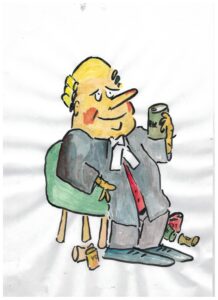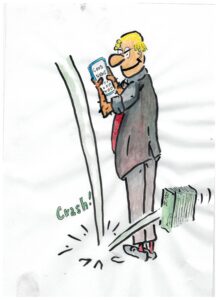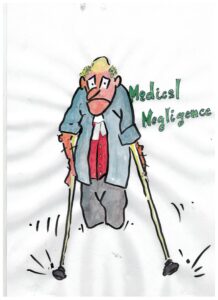Representation – Term or Collateral Contract?
- 2021-08-16
- By Dr Will Higgs PhD, Barrister
- Posted in Contract Law
In Hospital Products Ltd v United States Surgical Corporation (1984) 156 CLR 41; 55 ALR 417 the majority agreed with the conclusion of the trial judge (and that of the Court of Appeal) that statements made by the distributors were promissory. Gibbs CJ disagreed but did note at 61-62:
“A representation made in the course of negotiations which result in a binding agreement may be a warranty — i.e., it may have binding contractual force — in one of two ways: it may become a term of the agreement itself, or it may be a separate collateral contract, the consideration for which is the promise to enter into the main agreement. In either case the question whether the representation creates a binding contractual obligation depends on the intention of the parties. In J. J. Savage & Sons Pty. Ltd. v. Blakney , at p. 442 and Ross v. Allis-Chalmers Australia Pty. Ltd. at pp. 565, 567, it was said that a statement will constitute a collateral warranty only if it was “promissory and not merely representational”, and it is equally true that a statement which is “merely representational” — i.e., which is not intended to be a binding promise — will not form part of the main contract. If the parties did not intend that there should be contractual liability in respect of the accuracy of the representation, it will not create contractual obligations. In the present case Mr. Blackman, who made his statements fraudulently, had, of course, no intention that they should amount to contractual undertakings, but he could not rely on his secret thoughts to escape liability, if his representations were reasonably considered by the persons to whom they were made as intended to be contractual promises, and if those persons intended to accept them as such. The intention of the parties is to be ascertained objectively; it “can only be deduced from the totality of the evidence”: Heilbut, Symons & Co. v. Buckleton , at p. 51. In other words, as Lord Denning said in Oscar Chess Ltd. v. Williams , at p. 328:
“The question whether a warranty was intended depends on the conduct of the parties, on their words and behaviour, rather than on their thoughts. If an intelligent bystander would reasonably infer that a warranty was intended, that will suffice.”
The intelligent bystander must however be in the situation of the parties, for “what must be ascertained is what is to be taken as the intention which reasonable persons would have had if placed in the situation of the parties”: Reardon Smith Line v. Hansen-Tangen , at p. 574.” [footnotes omitted]
SEARCH BLOG POSTS
LATEST BLOG POSTS
- Updated product safety mandatory reporting guidance for suppliers now available
- Pleading fraud – cause and effect is essential
- Does the Trustee’s right of indemnity have priority over the right of beneficiaries in relation to assets?
- Rules of war (in a nutshell) | The Laws Of War
- MH370 Final Report
Past Blog Posts
- December 2021
- September 2021
- August 2021
- May 2021
- April 2021
- March 2021
- August 2020
- February 2020
- September 2019
- February 2019
- December 2018
- July 2018
- April 2018
- December 2017
- May 2017
- February 2017
- December 2016
- November 2016
- October 2016
- September 2016
- August 2016
- April 2016
- March 2016
- October 2015
- September 2015
- August 2015
- May 2014
- April 2014
- March 2014
- January 2014
Categories
- Appeals
- Artificial Intelligence
- Aviation law
- Banking and Finance Law
- Blogs
- Civil Liability Act
- Class Actions
- Coding for lawyers
- common law
- Consumer Claims (TPA)
- Contract Law
- Contractual Interpretation
- Criminal law
- Deeds
- Docassemble
- duty of care
- Engineering Law
- Equity
- Evidence
- Exclusion Clauses
- Execution of documents
- Expert Witness
- featured
- Financial Services
- Fraud
- Fundraising (Chapter 6D)
- General comment
- Home Building Law
- Insurance
- Legal drafting
- Local Court
- Medical Negligence
- MH370
- Motor Accidents
- Negligence
- Occupiers negligence
- Other
- Personal Injury
- Personal Property Securities (PPSA)
- Pleading
- Practice & Procedure
- Products Liability
- Property
- Real Property
- Reasons for a decision
- Securitisation
- Security (Mortgages & Charges)
- Sentencing
- Swaps & Derivatives
- Teaching
- Transactional Law
- Transfer of financial assets in transactions
- Trusts & Trustee Law
- Uncategorized
- War and Weaponry
- Witnesses
SEARCH BLOG POSTS
LATEST BLOG POSTS
- Updated product safety mandatory reporting guidance for suppliers now available
- Pleading fraud – cause and effect is essential
- Does the Trustee’s right of indemnity have priority over the right of beneficiaries in relation to assets?
- Rules of war (in a nutshell) | The Laws Of War
- MH370 Final Report
Past Blog Posts
- December 2021
- September 2021
- August 2021
- May 2021
- April 2021
- March 2021
- August 2020
- February 2020
- September 2019
- February 2019
- December 2018
- July 2018
- April 2018
- December 2017
- May 2017
- February 2017
- December 2016
- November 2016
- October 2016
- September 2016
- August 2016
- April 2016
- March 2016
- October 2015
- September 2015
- August 2015
- May 2014
- April 2014
- March 2014
- January 2014
Categories
- Appeals
- Artificial Intelligence
- Aviation law
- Banking and Finance Law
- Blogs
- Civil Liability Act
- Class Actions
- Coding for lawyers
- common law
- Consumer Claims (TPA)
- Contract Law
- Contractual Interpretation
- Criminal law
- Deeds
- Docassemble
- duty of care
- Engineering Law
- Equity
- Evidence
- Exclusion Clauses
- Execution of documents
- Expert Witness
- featured
- Financial Services
- Fraud
- Fundraising (Chapter 6D)
- General comment
- Home Building Law
- Insurance
- Legal drafting
- Local Court
- Medical Negligence
- MH370
- Motor Accidents
- Negligence
- Occupiers negligence
- Other
- Personal Injury
- Personal Property Securities (PPSA)
- Pleading
- Practice & Procedure
- Products Liability
- Property
- Real Property
- Reasons for a decision
- Securitisation
- Security (Mortgages & Charges)
- Sentencing
- Swaps & Derivatives
- Teaching
- Transactional Law
- Transfer of financial assets in transactions
- Trusts & Trustee Law
- Uncategorized
- War and Weaponry
- Witnesses




